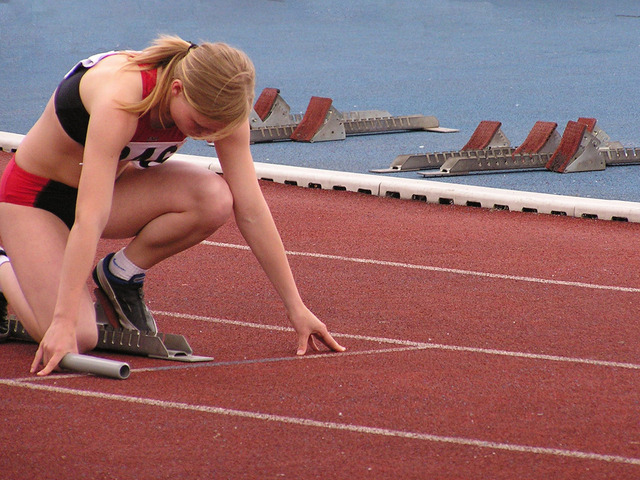
One of the most fundamental things to pay attention to regarding your musical practice and performance habits is how you prepare.
This “preparation” can be put into two categories:
- What you do the months, weeks, hours and/or moments before you begin to play (as in preparing for a specific performance).
- What you do the very brief instant before actually producing a sound on your instrument (both in the practice room and in performance).
Though both of these can have a profound impact upon the quality of your musical experience, today I’m going to address the second of these categories: What you do the instant you prepare to play.
As far as the functioning of your brain is concerned, nearly all motor movement (and all skilled and/or learned motor movement in particular) can not happen without some kind of preparation.
The vast majority of this preparation takes place unconsciously (e.g., postural tone, pre-learned basic motor programs, spatial positioning adjustments, etc.), while a much lesser part of it is conscious (e.g., voicing, “setting” the embouchure, conscious hand placement adjustments, etc.)
Though to function well, it is indeed necessary that most of the things you do to “prepare” the instant before playing are done without any conscious effort, there can sometimes be some negative consequences attached to this lack of attention to the details of what you do:
I’m talking in particular about any habits of reaction you have (movement, posture/positioning, attentional quality/direction, breathing, etc.) that might be keeping you from accessing your optimal coordination.
I use the word “habit” here deliberately, meaning that habit is something that you acquire through repetition. It is something learned and constantly cultivated (for better and for worse). Habits manifest themselves unconsciously, and are never “neutral” (i.e., you are either strengthening or weakening them, depending upon experience).
Again, these unconscious habits are useful and highly desirable if they are truly helping you get what you want.
But what about when they’re not helpful?
One of my main jobs as a teacher of the Alexander Technique is helping my clients understand and discover the “unhelpful” (counterproductive) unconscious habits they might bring to their playing experience.
When my clients learn how to recognize and subtract these habits, their playing opens up in lovely ways. In essence, they find more ease, power, control and satisfaction.
One of the first things I look for when I see a client for the first time is the quality of their preparation. “What does ‘getting ready to play’ look like for them?”
In asking myself this question, I look for several things, various clues as to how they are “using themselves”, both in preparation and in performance: what they’re doing with their bodies, how they are using their eyes, the sound/quality of their breathing, and more.
But the main thing I’m looking at is simply how they are managing the relationship between their head and their spine.
In Alexander Technique jargon, this “head/spine” relationship is known as the “primary control”. F.M. Alexander (the founder of the Alexander Technique) called it that because he found that this relationship had a primary impact upon the functioning of the limbs, quality of balance, breathing, as well as other senses and attentional quality.
A lot of what I look for with a first-time client is what they are “doing” with their neck in preparation to play. (Here by “doing”, I mean the typically unconscious and unnecessary muscular effort they’re applying to the act of playing their instrument.)
In reality, the best thing they can “do” with their neck is… nothing.
Yes, nothing.
You see, it’s this interference with the dynamic relationship (think “balance”, “mobility”, “stability”) of the head to neck relationship that is both a manifestation of, and evidence of, other aspects of misdirected effort.
When this misdirected effort is subtracted (or lessened) the ability to access your natural and healthy coordination is restored. You access the optimal conditions within yourself to more effectively “cooperate” with your glorious human design.
So what do you do with your neck that instant before you prepare to play?
What is the quality of your neck? Is it supple, dynamic and tending toward lengthening?
Or is it perhaps held, rigid and tending toward shortening?
If you notice that you tend to prepare by stiffening, holding onto and/or shortening your neck, maybe you can notice some of the other things you do in relation to that.
In particular, notice your jaw (free or held?), your shoulders, your back, your arms/hands, your knees, your connection to the ground, your breathing…your eyes.
Notice whether any of these other components of your “use” are organized and impacted by what you’re doing with your neck.
See what it’s like when you give yourself a wish to simply leave your neck alone, so that your head can balance freely atop your naturally lengthening spine.
Remind yourself that you don’t need to do anything with your neck to prepare to play those first notes. The unconscious movement/postural mechanisms in your brain already know what to do.
When you’re able to leave your neck alone, see if you can notice how the rest of you changes for the better.
Use a gentle, curious and kind awareness of yourself and your habits, and enjoy discovering more ease and satisfaction in your playing.